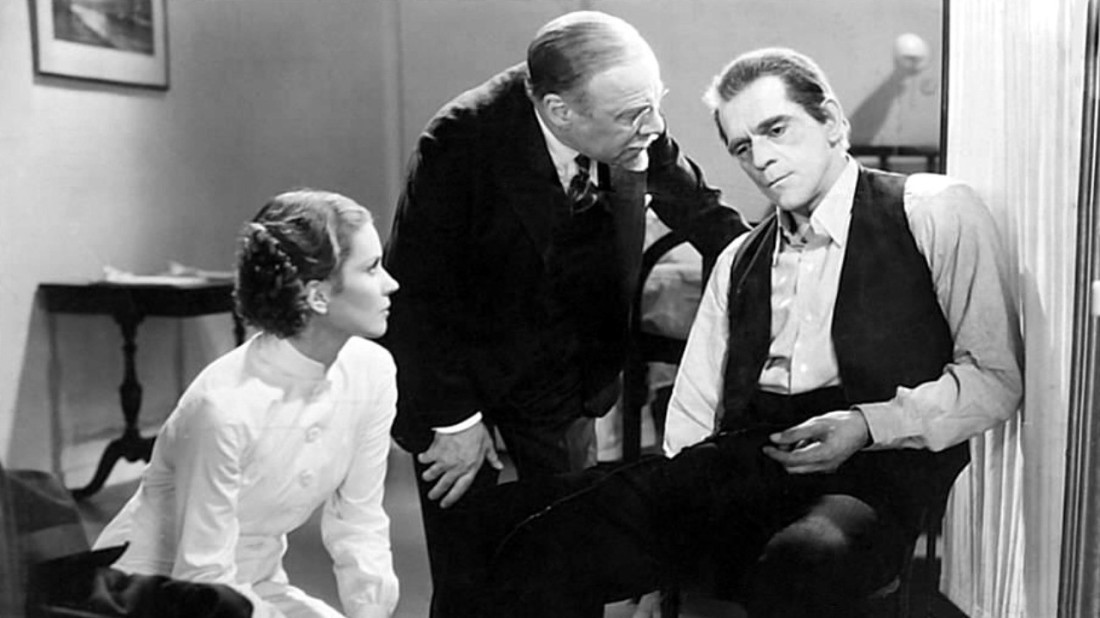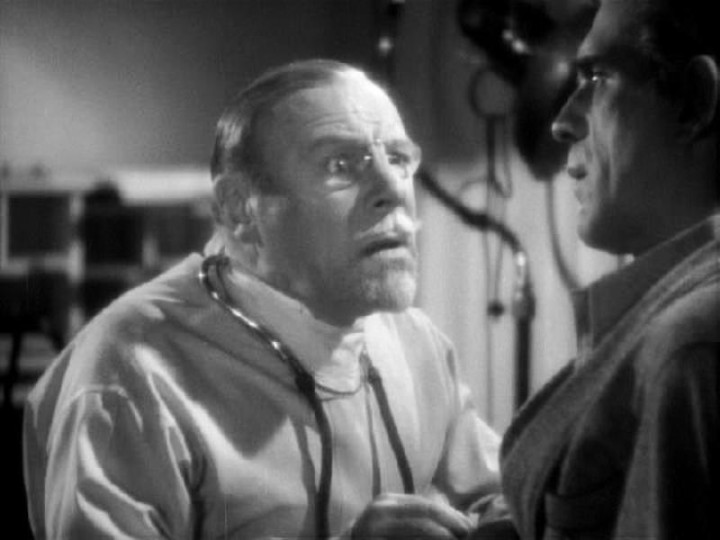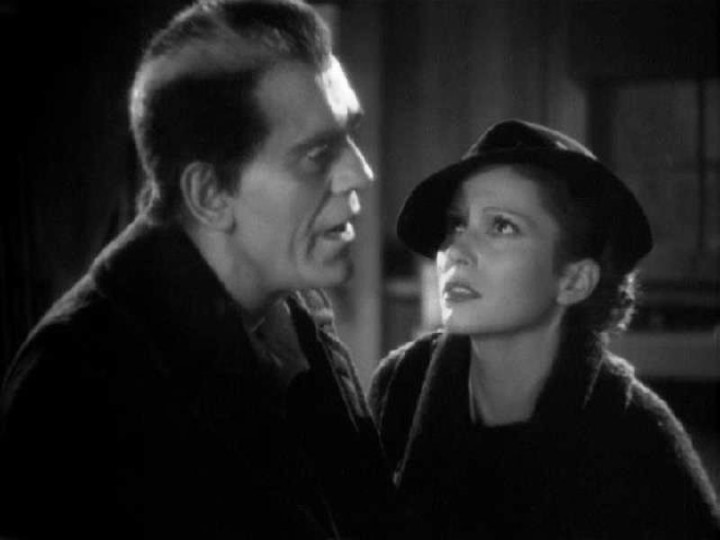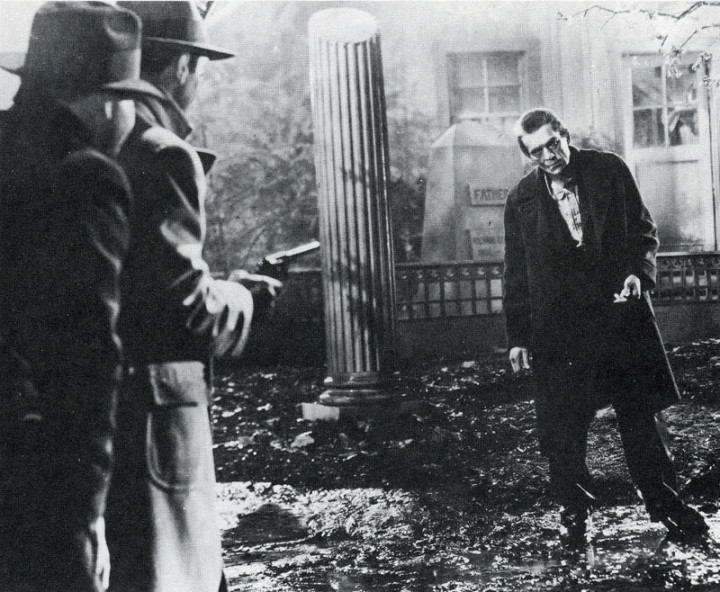Michael Curtiz’s The Walking Dead is never going to be genuine classic of the horror genre (though some have made that claim). Rather, it’s an intriguing little B movie from the final days of the first wave of horror (1931-36), made just before the moratorium on horror pictures. (Ultimately, commerce won out over this “decency” campaign.) It is by no means in the same league as Curtiz’s horror classics — Doctor X (1932) and Mystery of the Wax Museim (1933) — and not even as interesting as his quasi-horror The Mad Genius (1931), a film in which Boris Karloff had a minor role. Well, this was 1936 and Karloff no longer was a minor player, but a bonafide above-the-title star. So what WB wanted for him was a vehicle — and what five credited writers came up with was a mix of gangsters (well, it was WB) and Frankenstein with some pretty preachy religious overtones. It misses greatness on nearly every level, but it is unfailingly interesting, and it has good performances.
Karloff plays John Ellman, an ex-con — and supposedly great musician who, on the evidence, only knows one piece of music — who is framed by racketeers for a murder they committed. As luck would have it, he goes to the chair just as his innocence is established, but waiting in the wings is kindly Dr. Beaumont — played by Kris Kringle himself, Edmund Gwenn — who has the ability to bring him back from the dead. As usual in these movies, this isn’t the best plan. Not only is the revived Ellman pretty darn listless, but he’s gained a white streak in his hair (recalling the “Bride of Frankenstein”) and a cadaverous look. That look was achieved the same way Karloff’s Frankenstein Monster was — by removing his bridgework. Of course, that was the whole point — to make Karloff look as close as possible to the Monster without inviting litigation from Universal.
More than just looking creepy, Ellman is creepy, since he has returned from the dead in a strange state of apparent omniscience. He knows who his friends are and more to the point who his enemies are — even those he’s never seen. This, of course, means he will exact his revenge on them, but the film handles this in an unusual manner where Ellman never touches his victims, but causes them to panic and manage to get themselves killed — a kind of divine retribution. It works more than it doesn’t, but it ultimately makes the film curiously muted. The film’s single best sequence is where Ellman sees all the men responsible for his death at a gathering where he plays the piano. Curtiz stages this as pure theater, employing lighting effects that are more dramatic than realistic. The ending is effective, too, but if, like Dr. Beaument, you’re hoping to find out what happens after death, forget it. You’re going to be fed some guff about God being a jealous God.
The Thursday Horror Picture Show will screen The Walking Dead Thursday, May 29 at 8 p.m. in the Cinema Lounge at The Carolina Asheville and will be hosted by Xpress movie critics Ken Hanke and Justin Souther.







One thought on “The Walking Dead”